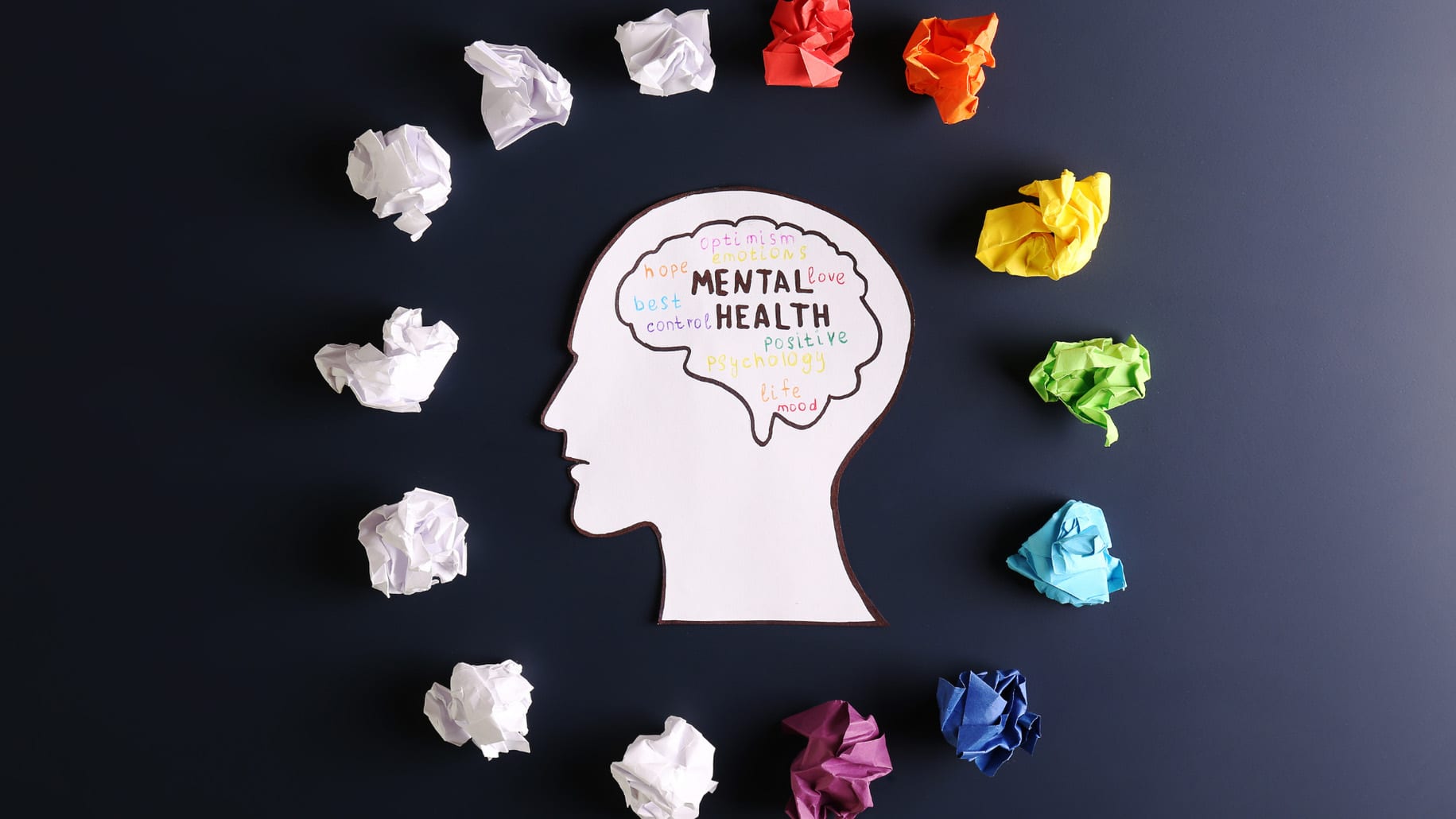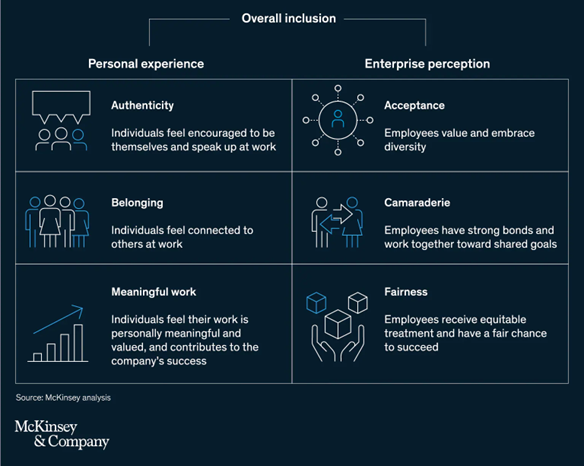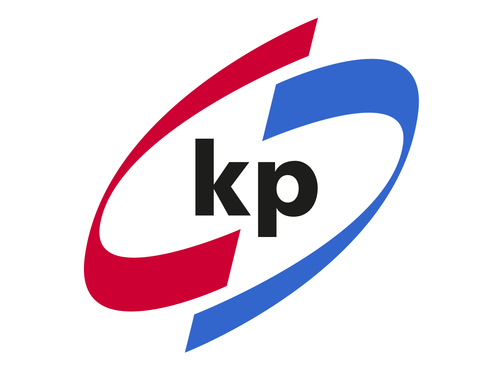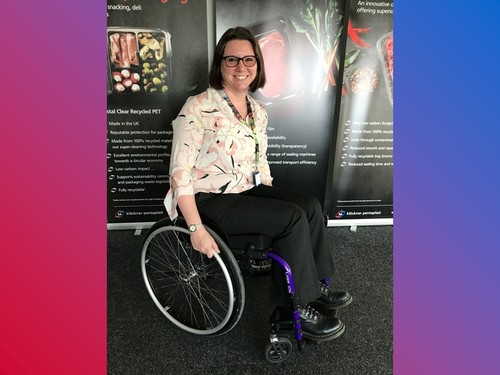Beyond Pride: How can inclusive workplaces improve mental wellbeing?

It is 2022 but we still live in a world where people from some communities are underrepresented in the workplace. Pride is an annual celebration to show how far LGBTQIA+ rights have come, but day in day out many barriers and challenges remain.
Isn't it time we went beyond Pride and fostered truly inclusive cultures that enable everyone to flourish, whilst improving mental health?
Share this story
Inclusive LGBTQIA+ mental health at work
We all want to feel safe, heard, and respected at work. It is essential for our mental health, and this is especially true for LGBTQIA+ colleagues.
To put this into perspective, Mental Health America states that over 39% of the US population identifying as lesbian, gay or bisexual have reported having a mental illness in the past year. A statistic that is higher than the wider population, and one replicated around the world.
When talking to Nikki Redman-Wray, Head of Learning and Development at JCDecaux, she shared how she used to mask her true identity:
“Early on in my career I exhausted myself by fabricating a version of my life to ‘fit in’. My professional façade didn’t align with my true self, and this had an impact on my mental health – although at the time that was also a taboo subject. I just kept things hidden, which affected me, my relationships and quite likely my performance in the workplace.”
To put this into perspective, Mental Health America states that over 39% of the US population identifying as lesbian, gay or bisexual have reported having a mental illness in the past year. A statistic that is higher than the wider population, and one replicated around the world.
When talking to Nikki Redman-Wray, Head of Learning and Development at JCDecaux, she shared how she used to mask her true identity:
“Early on in my career I exhausted myself by fabricating a version of my life to ‘fit in’. My professional façade didn’t align with my true self, and this had an impact on my mental health – although at the time that was also a taboo subject. I just kept things hidden, which affected me, my relationships and quite likely my performance in the workplace.”
I’m now working at a company where I feel accepted and valued. It’s great but this should be the norm – not just luck – which is why I feel all organisations should make their work environment inclusive for all.
Nikki Redman-Wray
Head of Learning and Development, JCDecaux
This lowered her self-esteem and left her feeling anxious as she tried to cover up the stories she’d told to ‘normalise’ her life. She also recounted an awful incident that she fears others may have experienced too:
“After a performance review with a line manager, where my work was praised but my personal lifestyle questioned, I decided enough was enough. Coming out to family and friends was a difficult journey for me but once I’d done that and felt accepted, I felt I didn’t need others judging me for my personal choices, so I stood up for myself and challenged the behaviour. I’m glad I did, but nobody should ever have to face this level of discrimination, especially in a work performance review.
“After a performance review with a line manager, where my work was praised but my personal lifestyle questioned, I decided enough was enough. Coming out to family and friends was a difficult journey for me but once I’d done that and felt accepted, I felt I didn’t need others judging me for my personal choices, so I stood up for myself and challenged the behaviour. I’m glad I did, but nobody should ever have to face this level of discrimination, especially in a work performance review.
I’m now working at a company where I feel accepted and valued. It’s great but this should be the norm – not just luck – which is why I feel all organisations should make their work environment inclusive for all.”
Whilst some individuals may choose to remain private about their personal life, simply put, more inclusive workplaces make sense from a business perspective as well as an ethical standpoint.
What does LGBTQIA+ inclusion look like in the workplace?
Inclusion should be at the core of any Equality and Diversity policy, but as the diagram below from McKinsey suggests, it is about more than paperwork or token Pride campaigns. Colleagues only truly feel included when both their firsthand experiences and their perceptions of organisation-wide support are positive, this means going beyond Pride month and changing logos to show support. It means actively developing a culture of inclusion.
A feeling of normal is the best way to describe it. Does it feel like you’re included and that it’s a normal part of every day.”
Whilst some individuals may choose to remain private about their personal life, simply put, more inclusive workplaces make sense from a business perspective as well as an ethical standpoint.
People shouldn’t ever have to be worried or concerned about being who they are, and fear that their careers are not progressing because of it. I’m proud that we support Pride, but we need to do the work all year round to ensure we are building a workplace culture where everyone feels accepted, valued, and empowered.
Linda Kennedy
CHRO, Klöckner Pentaplast
How do we build trust within workplace communities?
Linda Kennedy, Chief Human Resources Officer at kp, believes: “People shouldn’t ever have to be worried or concerned about being who they are, and fear that their careers are not progressing because of it. I’m proud that we support Pride, but we need to do the work all year round to ensure we are building a workplace culture where everyone feels accepted, valued, and empowered.”
The first steps we can all take to be more inclusive include:
The kp leadership team are doing the work to continue to educate themselves in this space. They’re also advocates for individuals who self-nominate to be part of employee resources networks and celebrate these contributions.
“As a company, we will keep emphasising that the culture of our workplace is open and inclusive. We will work with colleagues to continually improve. And we will play our part in leading conversations and offering training and support to deliver an environment where everyone is free to be themselves so we can thrive together…” said Linda
The first steps we can all take to be more inclusive include:
- Clearly stating pronouns (be they she/her, he/him, they/them or a mixture of pronouns, such as she/they or he/they) to normalise not assuming someone's gender.
- Supporting employee resource networks to amplify messaging.
- Doing the work by participating in training to keep building our knowledge.
- Incorporating gender neutral language in policies and communications.
- Being conscious of intersectionality.
- Addressing microaggressions – whilst individuals often don’t set out to offend, we should discuss inappropriate comments or those that make assumptions about others.
The kp leadership team are doing the work to continue to educate themselves in this space. They’re also advocates for individuals who self-nominate to be part of employee resources networks and celebrate these contributions.
“As a company, we will keep emphasising that the culture of our workplace is open and inclusive. We will work with colleagues to continually improve. And we will play our part in leading conversations and offering training and support to deliver an environment where everyone is free to be themselves so we can thrive together…” said Linda
How can we support LGBTQIA+ communities all year round?
It is up to every organisation to create an inclusive environment. Employers must ensure they’re cultivating a workplace in which all employees feel safe, equally treated, and supported.
At kp we are committed to celebrating Pride but want to ensure we’re active allies for more than just one month out of the year.
We do this by:
We’re striving to develop more inclusive workplaces and provide effective support to improve the mental wellbeing for members of the LGBTQIA+ communities and beyond. We’re committed to doing this as it’s only when everyone believes they can be their true self at work with no fear of judgment or career penalty that we will see true diversity of thought representative of the communities and customers we serve.
At kp we are committed to celebrating Pride but want to ensure we’re active allies for more than just one month out of the year.
We do this by:
- Keeping messaging clear, inclusive, and consistent year-round.
- Having inclusive policies and colleague-led employee resource networks.
- Using our platforms to ensure our support and stance on LGBTQIA+ issues is visible externally.
- Working to build a culture of trust where colleagues can be their authentic selves and share issues, perspectives, and experiences.
- Recognising everyone’s experiences and needs differ whilst offering support to each other by being better allies.
- Increasing awareness and support for all individuals who want to engage with our mental health initiatives.
We’re striving to develop more inclusive workplaces and provide effective support to improve the mental wellbeing for members of the LGBTQIA+ communities and beyond. We’re committed to doing this as it’s only when everyone believes they can be their true self at work with no fear of judgment or career penalty that we will see true diversity of thought representative of the communities and customers we serve.
Looking for support?
For anyone going on a journey, it can help to not have to go it alone. Seeking support from others can be helpful and it can help to speak to someone you trust about any mental health concerns you have.
Want to work for an inclusive employer?
At kp we know that our teams, and businesses, do better when everyone feels valued and can be themselves. You can find live vacancies at Careers (kpfilms.com)










